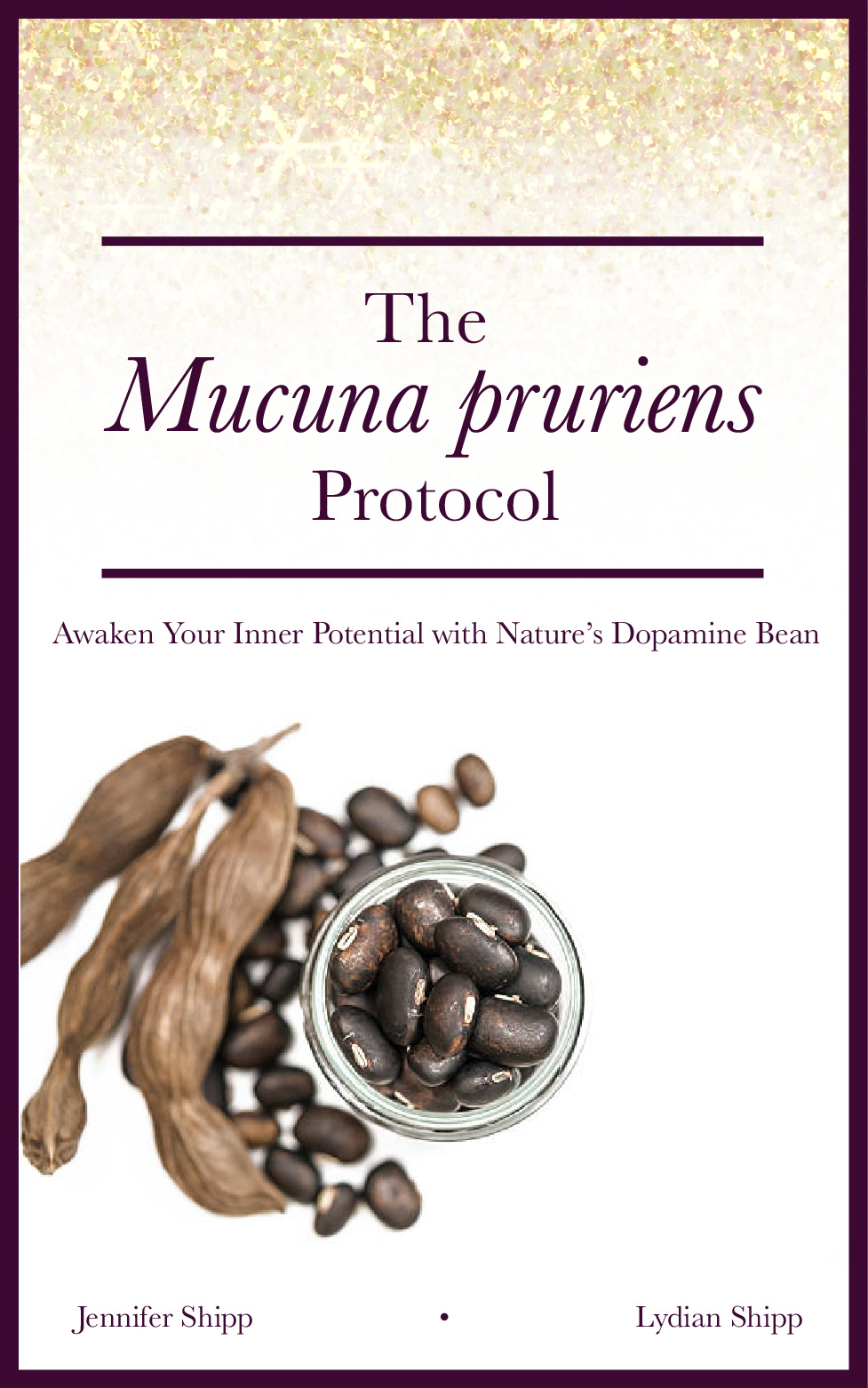Alcoholism Home Care Basics
Alcohol is a legal drug. It is socially acceptable to drink and it’s easy for people to obtain alcohol. But alcohol addiction poses a challenge for certain people not because of the fact that it’s legal, socially acceptable, or easy to get, but because of its effects on insulin resistance and blood sugar levels in the body.If your cells are “insulin resistant”, you have a problem and your body and your mind will work hard to come up with ways to treat this problem. Often, people are not conscious of their insulin resistance. They may feel it as exhaustion, fatigue, brain fog, depression, anxiety, or some other mental illness. They may begin drinking because the alcohol, in low doses, actually reduces the insulin resistance which makes them feel remarkably better. According to studies, low level alcohol consumption can improve insulin resistance. It seems that some people may develop an addiction to alcohol as a result of how it improves the problem (in low doses) of insulin resistance.
Unfortunately, high intake of alcohol worsens the problem of insulin resistance by creating a situation where cells have less access to quality nutrients and by worsening issues like obesity, poor liver function, etc. If you or a loved one is looking to do alcohol addiction treatment at home, one of the fundamental concepts that you need to understand is that alcoholism and diabetes are practically the same disease. But you also need to understand that diabetes is a curable disease despite what Big Pharma tries to tell people through the mainstream media. The insulin-producing cells in the pancreas can, in fact, be regrown to heal diabetes permanently. Click here to read more about how harmine, a substance found in Ayahuasca, can regrow the pancreatic beta cells to cure diabetes. The fact that harmine can cure diabetes may explain why Ayahuasca is such a powerful, natural cure for alcoholism.
Insulin resistance is a condition in which the cells in the body don’t respond appropriately to insulin. Insulin is a hormone that carries sugar and other nutrients from the blood supply into the cells. Insulin functions a bit like a key that opens channels in the cell membrane to make it possible for nutrients, medications, and sugars to pass into the cell. Obviously cells need nutrients and sugars to survive and thrive so insulin resistance is a major issue in terms of human health. Click here to read how doctors use insulin to potentiate low-dose chemo treatments for cancer while keeping the toxicity of treatment low.
Insulin resistance is related to diabetes and many people with diabetes develop insulin resistance before they develop diabetes, but insulin resistance may also lead to issues like obesity, cardiovascular disease, non-alcoholic fatty liver disease, and yes, alcoholism. Of course, the fact that insulin resistance and alcoholism are related is important. The fact that people may begin drinking initially because alcohol lessens their insulin resistance is something that everyone should know. It makes a lot of sense, in fact. Insulin resistance may feel like general fatigue, brain fog, or an “inability to think”, depression, or anxiety. A number of studies have shown that alcohol consumption can improve insulin sensitivity and lessen these symptoms at least initially when alcohol consumption is still in low doses and within controlled parameters. If people knew that alcohol addiction was typically caused by insulin resistance and nutrient deficiencies at the cellular level, a lot of stigma around alcoholism might be reduces. Also, treatment for alcoholism at home would be significantly simplified. The idea that insulin resistance plays a leading role in the development of alcoholism lends credibility to the idea that people often begin drinking to self-medicate for an issue related to blood sugar levels and a lack of nutrient availability in cells due to insulin resistance. Rather than saying that “alcoholism is a disease”, it might be more apt to say that alcoholism develops as a result of people trying to self-medicate for symptoms of insulin resistance.
Insulin and its ability to open cells up to consume nutrients and sugars plays a role in a number of mental illnesses. If cells in the brain become “tired” or “drained” in terms of fuel and nutrients, it can be hard for people to feel okay with the world. Add a little trauma from childhood or from adulthood (trauma is a pretty pervasive human experience) along with general nutrient deficiencies and a poor diet and you have the perfect storm for poor mental health. In order for trauma to be released from the body, the brain and nervous system have to be functional. Trauma release is usually a fairly painless process, though, as humans, we have to be intentional in our search for ways to release our trauma. Recovery from alcoholism should always include intentional work with therapies to release trauma, for example, Eye Movement Desensitization and Reprocessing (EMDR), but most people also need help to overcome insulin resistance naturally at the same time. Many rehab facilities work with abstinence, support groups, and talk therapy as opposed to body-based trauma release therapies. This is why their relapse rates are so high.
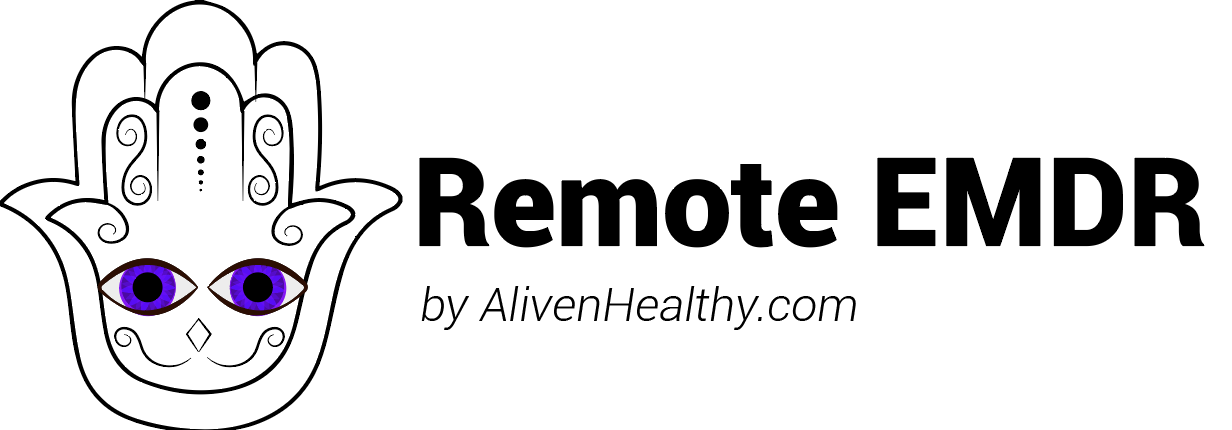
Click here to do a free trial of EMDR online.
So the question then becomes, how do we treat insulin resistance? If you aren’t diabetic, you might still think about this problem of insulin resistance as though you were “pre-diabetic”. Natural herbal cures for diabetes can be extremely useful as natural cures for alcohol addiction.
If you want to stop drinking, begin by changing your diet (below we discuss the ketogenic diet as a good place to start in terms of treating alcoholism). Take nutrient supplements even before you take your last drink if you’re a complete newbie. Support alcohol detox at home by taking Taurine in high doses. Also begin taking natural herbs for alcoholism that regrow the insulin-producing cells in your pancreas (these include Melissa officinalis, Adansonia digitata, Arctium lappa, Aloe arborescens, and Ayahuasca).
Note that herbs like Kudzu specifically target blood sugar levels and insulin. This herb has been studied specifically for its ability to protect nerve tissues in diabetics. Click here to read more about Kudzu as an herbal remedy for diabetes, but more importantly, Kudzu can help you drink less alcohol naturally. It’s an herb that can help people step down from high doses of alcohol to lower doses without struggling through that process. It may not be able to make you quit drinking alcohol completely, but taking Kudzu can give people some confidence as they get started on the process of treating alcoholism at home.
Also note that while Kudzu can help you reduce how much alcohol you drink naturally, Mucuna pruriens is an herbal remedy for alcoholism that can help you control cravings and quell the addictive process via its effects on the dopaminergic system in the brain. The vitamins and minerals that we recommend below will not only help your body process the herbal remedies for alcoholism, they will also nourish your body in a way that will make it less needy and less oriented toward “cravings” in general.

Click here to buy the book, Herbal Diabetes Cures and Treatments.
Also note that Lugol’s iodine is a nutrient that supports pancreatic function as well as insulin sensitivity. Click here to read more about Lugol’s iodine as a cure for diabetes, but note, once again, that diabetes and alcoholism are related health issues.
Finally, let’s note that non-alcoholic fatty liver disease and alcoholic fatty liver disease may essentially be a manifestation of the same problem. Though alcoholic fatty liver disease may be worsened by the patient’s consumption of alcohol, indeed, a patient with insulin resistance and pre-diabetes may develop fatty liver disease even without ever consuming any alcohol. Thankfully, the liver is one of the easiest organs in the body to be able to regenerate itself so, if you’re still alive and you’re committed to healing your liver, the herbs listed here can help with that process along with the liver detoxification treatments that we discuss below.
Supplements and Herbs That Help with Alcoholism
- Kudzu - This is a must-have supplement for alcoholics. Take 2000 mg every 2.5 hours, 3-4 times per day to reduce cravings for alcohol and to diminish the amount of alcohol that you or a loved one wants to drink. Note that Andrographis paniculata is an alternative treatment for alcoholism if you can’t get Kudzu in your area.
- Mucuna pruriens - Take 6000 mg daily in divided doses. Take 1500 mg in the morning, 1500 mg again at noon, 1500 mg at 3:00 pm, and finally 1500 mg again at 6:00 pm or at bedtime.
The Mucuna pruriens Protocol: Overcome Dementia, Addiction, ADHD, Mood and Mental Health Disorders
- NAD+ Supplement - Many of the negative effects of alcohol consumption occur as a result of reduction-oxidation reactions that take place as alcohol is being metabolized in the body. The oxidation of alcohol to acetaldehyde and then to acetate increases the ratio of NADH to NAD+ in the body. This then contributes to the accumulation of fat in the liver, fatty liver disease, and cirrhosis. Take 500 mg daily or seek out a boutique IV spa to have NAD+ administered intravenously.
- Molecular Hydrogen Water - Molecular hydrogen water can be generated at home using a molecular hydrogen generator. This tool can be used to generate water that contains a high concentration of molecular hydrogen that heals the liver. Molecular hydrogen water should be administered as drinking water twice daily for at least 6 months.
- Vitamin B6 - You must take at least 25-40 mg of vitamin B6 daily to convert Mucuna pruriens to dopamine in the brain. Take this vitamin B100 complex with the multivitamin below to ensure that you’re getting plenty of the B vitamins, especially vitamin B6, that you need to transform all of the nutrients and herbs listed here into their active forms.
- Multivitamin - Take 1 per day. Make sure that whichever multivitamin you take includes both vitamin C and zinc. I recommend that patients take the Thorne Research brand multivitamin because this vitamin contains properly proportioned ingredients for holistic health.
- Lugol’s Iodine - Lugol’s iodine contains both molecular iodine and potassium iodide. Iodine is the most important nutrient that your thyroid gland needs in order to be healthy, but iodine also plays a role in the health of the pancreas. This is relevant to anyone who wishes to treat alcoholism at home because physiologically, blood sugar irregularities play a major role in alcohol cravings and relapse. Click here to read how to do the full iodine protocol, which is especially relevant to anyone with thyroid problems and alcoholism. If you suffer from alcoholism and thyroid problems, follow the Basic Iodine Protocol (which includes a fairly extensive list of supportive nutrients) as Step One in your process. Be sure to work with Lugol’s Iodine or Iodoral rather than other iodine products like Nascent iodine, for example, which only contains molecular iodine rather than a combination of molecular iodine and potassium iodide. You need both of these types of iodine.
- Vitamin K2 / Menaquinone-7 / MK-7 - Vitamin K2 deficiency is almost as common these days as iodine deficiency in large part because of the introduction of GMO staple foods like wheat, corn, and soy. These nutrient deficient GMO plants do not go through the “shikimate pathway” that makes it possible for them to produce quinones like Menaquinone-7 (vitamin K2), methylfolate, or Coenzyme Q10. If you have cardiovascular issues or a bone or blood disease click here and be sure to take vitamin K2 as well as coenzyme Q10. Click here to read more about vitamin K2 deficiency. Note that vitamin K2 is a scientifically proven cure for leukemia, lymphoma, myeloma, all blood and bone cancers, and reproductive organ cancers.
- Lithium Orotate - Lithium orotate is a natural salt that has been shown to reduce alcohol cravings naturally while also reducing relapse in alcoholics. Lithium orotate is different from Lithium Carbonate or Lithium Chloride, which are two synthetic pharmaceuticals that are rather toxic to the body and that are hard to dose properly. Lithium orotate, in contrast, is administered as a trace mineral / electrolyte that helps human cells function better at a dose of between 5-80 mg per day. Click here to learn more about how trace minerals / electrolytes help cells function better.
- Amino Acid supplement - Take 1 dose per day at a time separate from the Mucuna pruriens. Taking this supplement at the same time as the Mucuna could prevent the dopamine precursors in Mucuna from passing the blood-brain barrier. Be sure to choose an essential amino acids supplement that contains L-Tyrosine.
- N-acetyl-cysteine (NAC) - Take 600-1000 mg every 4 hours. This supplement will help your brain and body recalibrate so that you don’t feel as much like engaging in compulsive/habitual behaviors (for example, many alcoholics drink at specific times of the day or in specific situations, and NAC helps reduce the need to drink at these times). NAC also helps detoxify the liver. This supplement may be taken at the same time as the Mucuna pruriens.
- L-Theanine - Take on an as-needed basis. This is an amino acid found in green tea, and it will help you feel more relaxed and peaceful.
- Magnesium - Take 400 mg in the morning and 400 mg at night. Magnesium deficiency is really common and it generally causes people to feel jittery or restless. Keep your magnesium levels high if you’re doing alcohol addiction recovery at home because having adequate levels of magnesium will generally make you feel more relaxed. Note also that magnesium plays a vital role in detoxification of the liver. If you’re deficient in this nutrient, your liver won’t be able to dump its contents which will lead to a build up of toxins that worsen fatty liver disease.
- Melatonin - Take a 3-10 mg extended release supplement immediately before sleeping. Do not turn on the lights or expose yourself to light from electronic devices after taking melatonin.
- Kava Kava - Kava Kava can be used as 1 cup of the root in 1 gallon of boiling water that has been allowed to cool and steep for 1 hour often reduces alcohol cravings and helps produce a feeling of relaxation.
- Bacopa monnieri - B. monnieri at 3.75 mg/kg body weight can be used with Ashwagandha to reduce anxiety during alcohol withdrawal.
- Ashwagandha - Take 10 mg/kg of body weight with B. monnieri or with your Mucuna pruriens supplement.
- Agmatine Sulfate - Agmatine sulfate is a derivative of the amino acid Arginine. Arginine plays an important role in the body in that it helps regulate blood flow by playing a part in the production of nitric oxide. If you can’t obtain something like psilocybin for microdosing to treat alcohol addiction, agmatine sulfate is an alternative. Agmatine helps grow brain cells which in turn, helps people with addiction come up with new solutions to old problems. This substance can also aid in the release of trauma, though it works much more slowly in our experience than psilocybin microdosing. Click here to read more about how Agmatine Sulfate works to heal the brain.
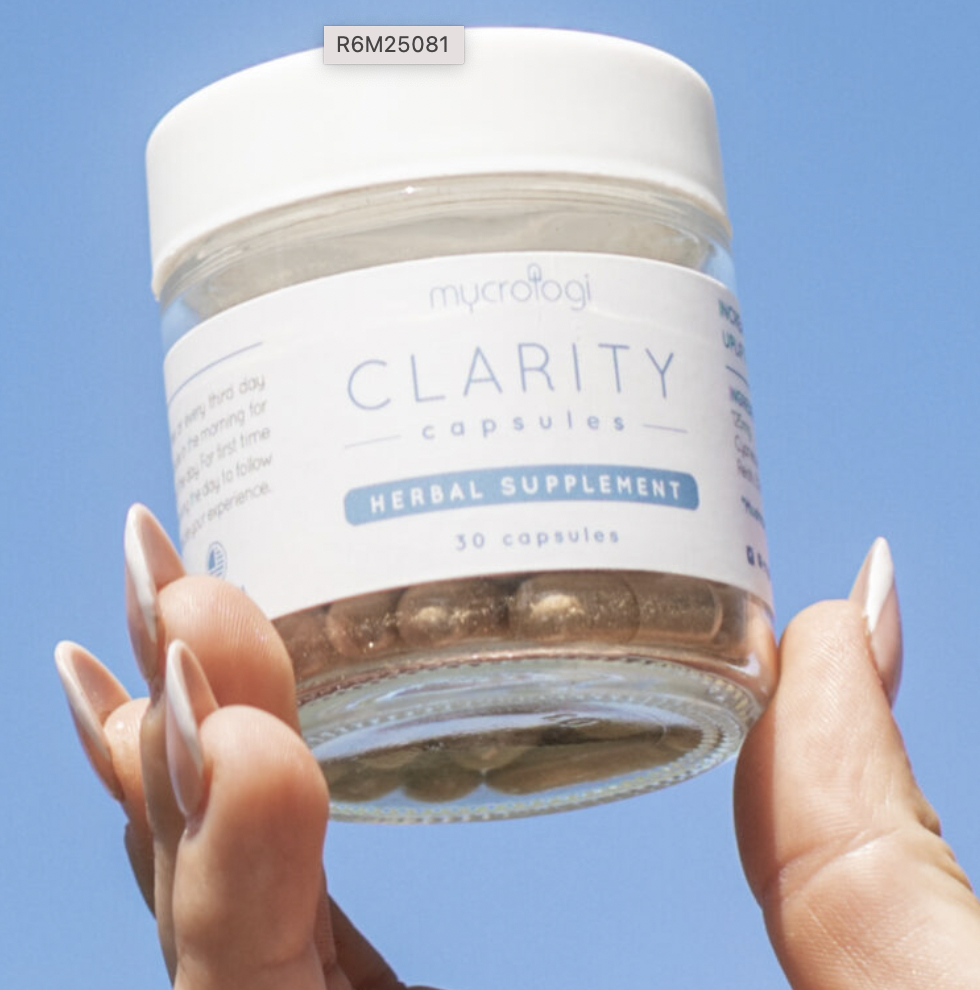
Click here to buy psilocybin online.
Herbs for Insulin Resistance or to Regrow Pancreatic Beta Cells
- Melissa officinalis / lemon balm - Melissa officinalis is an herb that’s even safe for use as a cure for diabetes during pregnancy. It is gentle, yet effective as a treatment to regrow beta cells and cure diabetes naturally.
- Adansonia digitata / Baobab fruit - Adansonia digitata lowers blood sugar levels naturally. It may or may not be useful as an herbal remedy for alcoholism in some people. Work with only one herb at a time for about a week, before you add another herbal remedy for alcohol addiction into your protocol.
- Arctium lappa / Burdock Root - Arctium lappa is a miracle worker in terms of liver health, but it is also well regarded as a cure for diabetes and insulin resistance among other things.
- Aloe arborescens - Aloe arborescens is a powerful diabetes cure. It is particularly valuable in individuals who have been diagnosed with both diabetes and cancer.
- Ayahuasca - Ayahuasca is one of several sacred indigenous medicines that can regrow beta cells in the pancreas. Ayahuasca is one of the most potent herbal remedies for diabetes, but this amazing herb is well revered as a cure for alcoholism not just because of how it can restore the body, but because it can also release trauma and help alcoholics reframe their situation in a way to reduce alcohol relapse after just 1-3 doses. If you’re interested in Ayahuasca for alcoholism, contact us at [email protected] for more information. We assist clients through Ayahuasca ceremonies in Mexico to overcome alcoholism and other addictions.
Amino Acids for Alcoholism Home Care
The most important amino acids for overcoming an alcohol addiction are listed below. Consider taking these amino acids in supplement form for at least 6 months to one year to break an alcohol addiction:
- Taurine - Taurine lowers the level of acetaldehyde in the body. Acetaldehyde is a toxic metabolite that can cause brain fog. Taurine can naturally reduce withdrawal symptoms like hallucinations and delirium when taken in high doses. It should be administered at a dose of 1000 mg three times per day.
- Acetyl-L-Carnitine - Acetyl-L-Carnitine is an amino acid that improves reasoning and memory in recovering alcoholics. It should be administered at a dose of 2000 mg per day.
- L-Tryptophan - Take 1000 mg at night 1 hour before bed. L-Tryptophan can reduce alcohol cravings naturally. Taking L-Tryptophan before drinking can also reduce the severity of mental impairment that occurs with alcohol use.
- L-Tyrosine - Take between 4000-10,000 mg per day. Take the lower dose if you’re also working with Kudzu and/or Mucuna pruriens.
Supplements and Herbs Used for Sleep
Also, take melatonin to prevent insomnia during the withdrawal and detox process.
- Melatonin - Take a 3-10 mg of an extended release supplement before bed to improve sleep.
- Magnolia Bark / Honokiol - Some alcoholics use alcohol to relax or to fall asleep. If this describes your situation, you may experience some insomnia or trouble sleeping during the withdrawal process. To make it easier to sleep, take honokiol/magnolia bark. Creating a nighttime routine will also help improve sleep quality (which will in turn improve your overall mood during the daytime hours, too).
- Magnesium - Take at least one dose of magnesium (400 mg) at night before bed to help your body feel restful.
Diet for Quitting Alcohol
It’s important to acknowledge that nutrition, of course, also plays a role in alcohol addiction. Diet can set off the addictive cycle, in fact. People who are trying to figure out how to quit drinking permanently need to know that eating refined sugars can actually trigger a relapse, for example because of the relationship between alcoholism and blood sugar issues. Click here to read a quick overview of what to avoid in order to create a good diet for alcoholism recovery.
Following a special diet can make push the at home alcoholism recovery process forward faster:
- Ketogenic Diet - Scientific studies have confirmed that a ketogenic diet reduces alcohol withdrawal symptoms by alleviating low blood sugar issues. The ketogenic diet is very low in carbohydrates and sugars which allows the body to reset and regain health via its impact on insulin sensitivity.
Peptides and Nootropics for Alcoholism
Note that nootropics and peptides like Semax and Selank have been studied for their ability to help alcoholics overcome addiction naturally too.
- Semax: Take 50 micrograms per day for 10 days.
- Selank: Take 0.3 mg/kg of body weight. Selank reduces anxiety and other unpleasant symptoms during withdrawals.
Natural At Home Alcohol Detox
The liver suffers a great deal as a result of drinking a lot of alcohol, but the liver also has an incredible ability to regenerate itself more than any other organ in the body if you know how to take care of it. Below are powerful alternative liver treatments for alcohol addiction that cleanse and detoxify the liver and allow it to regrow and repair itself.
- Taurine - Taurine assists body recovery to stop drinking naturally.
How to Release Trauma to Stop Drinking
Finally, it’s important that you seek out trauma-informed therapies to begin releasing trauma from your body as you begin your alcohol addiction recovery at home. There are a number of trauma-informed therapies that are relatively easy for most people to access. These include:
- Craniosacral Therapy (which is done by a Craniosacral Therapist)
- Alpha-Theta Therapy
- Online Hypnotherapy
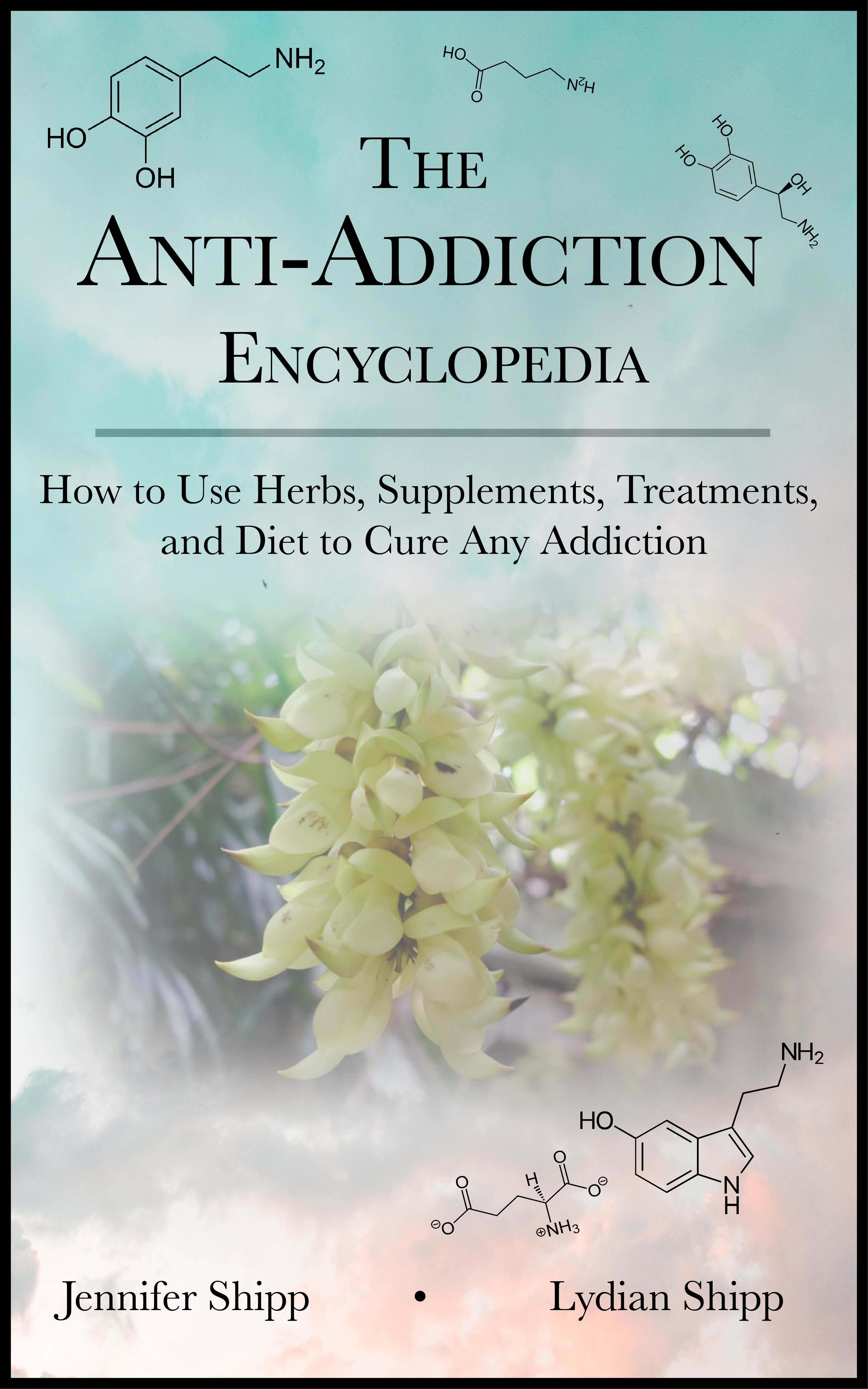
Click here to buy The Anti-Addiction Encyclopedia.
Resources:

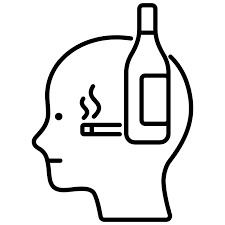 Alcoholism has been called a disease and it has also been regarded as a defect in a person's willpower. New studies, however, have shown that alcoholism is actually linked to insulin resistance which indicates that alcoholics are often trying to self-medicate to reduce symptoms of pre-diabetes.
Alcoholism has been called a disease and it has also been regarded as a defect in a person's willpower. New studies, however, have shown that alcoholism is actually linked to insulin resistance which indicates that alcoholics are often trying to self-medicate to reduce symptoms of pre-diabetes.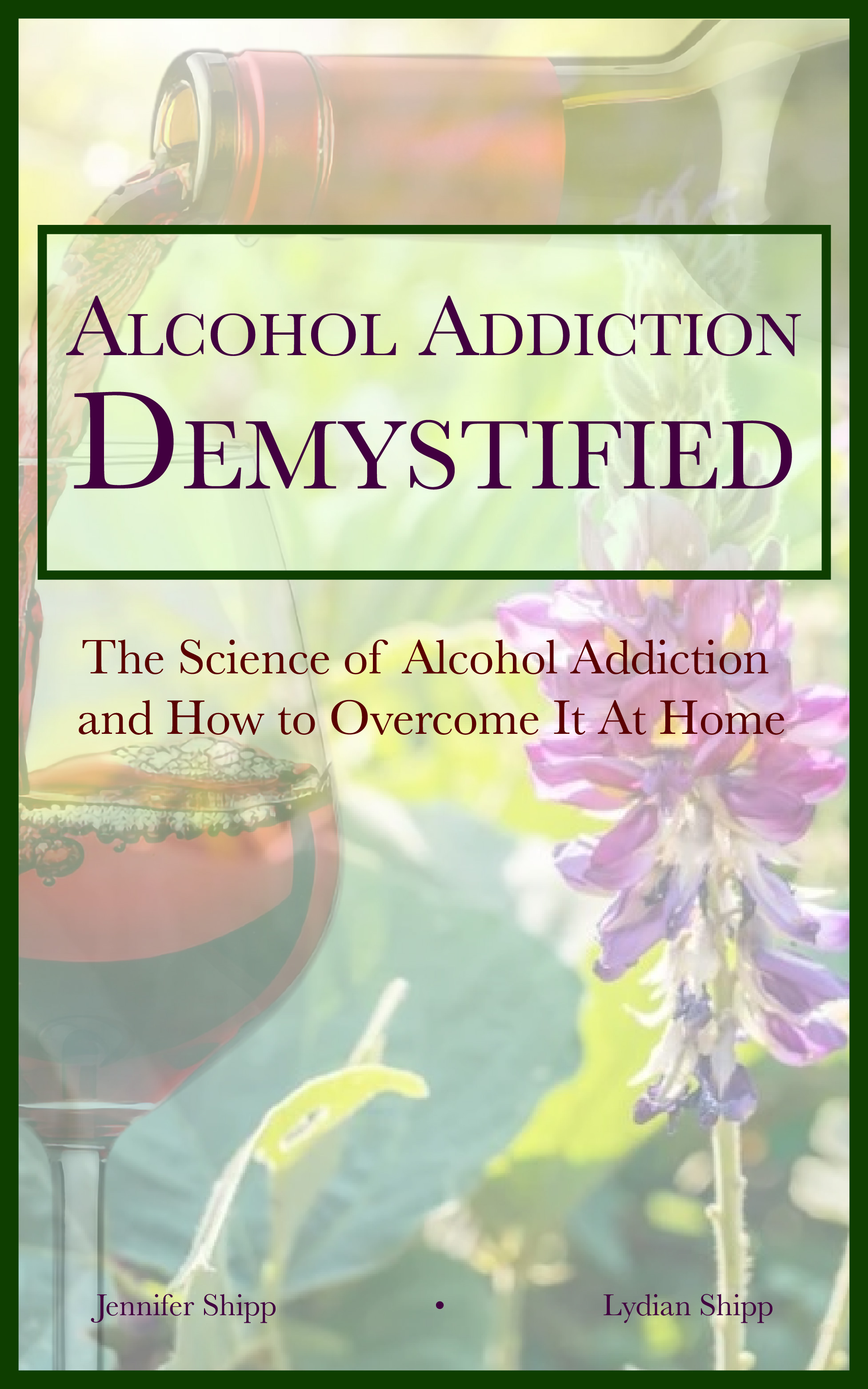 Alcohol Addiction Demystified: The Science of Alcohol Addiction and How to Overcome It At Home - BUY HERE!
Alcohol Addiction Demystified: The Science of Alcohol Addiction and How to Overcome It At Home - BUY HERE!